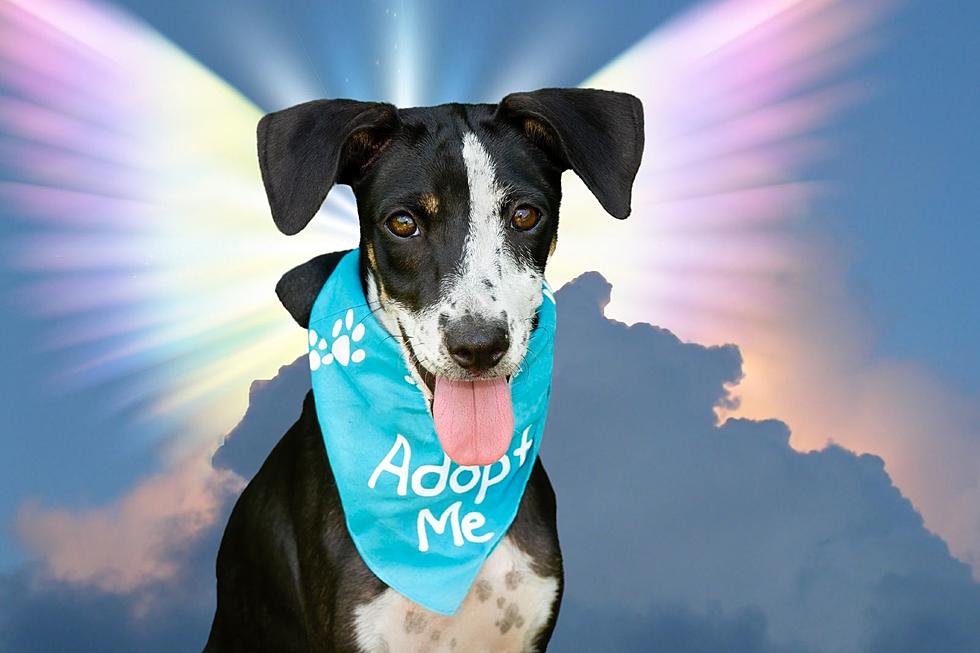
How Much Is Too Much When It Come To Fireworks in Montana
By bringing up this topic, I'm fully aware that I risk sounding unpatriotic or like a fuddy dutty, but we're going to chat about it anyway. Before we get too far into the weeds, let me preface this by saying I love fireworks as much as the next guy, and I bleed Red, White, and Blue, But the question remains... How much is too much?
It's no secret that folks in Montana love their fireworks and celebrating their freedom, and rightly so! But with that said, the days leading up to the 4th of July and even a few days following the holiday make it seem like an all-out war zone in some Montana cities. This may not seem like a big deal to most, but I can promise folks with pets of people living with PTSD may feel a bit differently.
Fireworks and Pets
It's no secret that fireworks can be a source of anxiety and distress for many pets. The loud noises and bright light flashes can startle animals and cause them to feel scared or agitated. Again, it may not seem like a big deal to people without pets or with unphased pets, but trying to comfort a terrified animal is downright heartbreaking.
Tips to help you manage your pets' well-being during fireworks displays:
- Keep pets indoors: During fireworks, it's best to keep your pets indoors in a safe and secure area. Create a comfortable space for them with their favorite toys, blankets, and bedding. Close windows and curtains to help muffle the noise and block out the bright lights.
- Provide a safe hiding place: Create a designated hiding place for your pets to retreat if they feel scared. This can be a crate, a closet, or a quiet room with their bed and familiar items. Make sure they have easy access to this space.
- Drown out the noise: Try to drown out the sound of fireworks by playing calming music or turning on the television. The background noise can help mask the sounds of the fireworks and provide a sense of security for your pets.
- Comfort and reassure them: Stay with your pets if they seek comfort during the fireworks. Speak to them in a calm and soothing tone, and offer gentle petting to help them feel reassured. However, avoid excessive coddling, as it may reinforce their fear.
- Identification and microchipping: Ensure that your pets are properly identified with tags on their collars and that their microchip information is up to date. If they escape or get lost due to fear, proper identification will help increase the chances of a safe return.
- Consult your veterinarian: If your pet has an extreme fear of fireworks or suffers from severe anxiety, consult with your veterinarian. They may be able to recommend calming techniques or prescribe medication to help alleviate your pet's anxiety during fireworks displays.
Fireworks and PTSD
Pet's are one thing, but think about our military folks who have spent time in a war zone! Can you imagine what it's like to be surrounded by nonstop explosions when you've been in that situation? I know I certainly can't.
Managing Fireworks and PTSD:
- Plan: Find out when and where fireworks displays are scheduled in your area. This will allow you to prepare in advance and make arrangements to minimize exposure to the triggers. Knowing when to expect fireworks can help you mentally prepare for the event.
- Create a safe space: Identify a safe and comfortable space to retreat during the fireworks. This might be a quiet room in your home or a familiar location where you feel secure. Fill the space with items that bring you comfort and a sense of safety.
- Use noise-canceling devices: Consider using noise-canceling headphones or earplugs to reduce the impact of loud sounds. This can help minimize the auditory triggers associated with fireworks and provide a sense of control over your environment.
- Practice relaxation techniques: Engage in relaxation techniques such as deep breathing exercises, meditation, or progressive muscle relaxation before, during, and after the fireworks. These techniques can help you manage anxiety and maintain a sense of calm.
- Seek support: Contact trusted friends, family members, or support groups who understand your condition. Let them know about your concerns regarding fireworks and PTSD, so they can provide the support and understanding you may need during this time.
- Consider therapy options: If fireworks trigger severe distress or significantly impact your daily life, it may be helpful to seek professional help. Therapies such as cognitive-behavioral therapy (CBT) or eye movement desensitization and reprocessing (EMDR) can assist in managing PTSD symptoms and reducing the impact of triggers.
Conclusion
At the end of the day, I'm not trying to make an argument for or against fireworks. All I'm hoping to accomplish is to get folks thinking about those around them.
Simple ways to help your pets cope during fireworks
More From 94.5 Max Country








